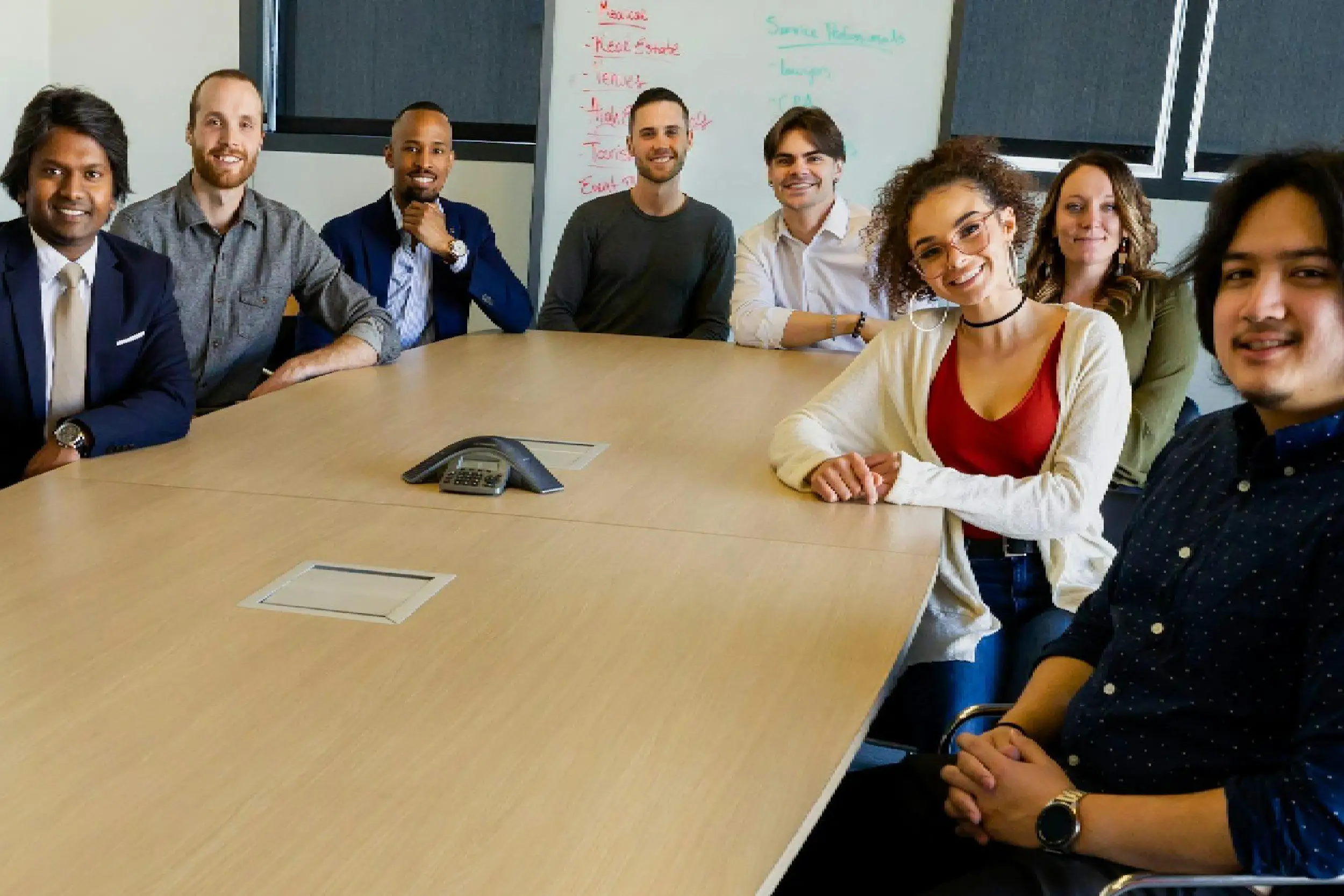Written By Tracey Pennywell I CEO – HBCU Heroes I DEI Strategist I Career Coach I Author
Transitioning from a Historically Black Colleges and Universities (HBCU) campus to the C-suite isn’t merely a possibility—it’s underway, and it’s because students like you are breaking the mold.

But the numbers remind us why the work is so crucial. Only 14% of all US workers are Black. At higher levels, the numbers are far lower—only 7% of managers and 3% of executives are Black.
For HBCU students, the problem is rarely talent. It’s a problem of access, visibility, and intentional leadership development that boils down to real life impact and higher earning power.
If you’re here, you’re already ahead of the pack.
You come to the realization that leadership isn’t about titles; it’s about influence, vision, and ability to inspire change in yourself and your people.
Why Leadership Skills Are More Important Than Ever
Leadership is the currency of the future.
Leadership and management skills are two of the most in-demand soft skills in all industries, as per LinkedIn’s Workplace Learning Report 2025.
Employers want workers who can communicate, motivate groups, solve problems, and work under shifting circumstances—skills not innate but learned.
But here’s the twist: Black professionals are bypassed for management roles.
Coqual’s 2023 Black Equity Index (BEI) research shows that Black staff often don’t get a chance at high-visibility tasks that lead to growth, which is reflective of persistent challenges for visibility and advancement.
This “opportunity gap” starts early, even in college, and that’s why strategic leadership development is not a nicety for HBCU students—it’s a necessity.
If you want to be something more than a statistic, you must be strategic. Let’s take a step-by-step approach about how you can develop the leadership toolkit that will get you noticed, promoted, and paid.
Step 1: Get Involved—But Be Strategic
Every HBCU campus is a microcosm of opportunity.

There are several dozen student organizations, honor societies, and leadership programs.
Join but do not just join. Lead.
Run for office in the Student Government Association (SGA). Chair a committee for your campus National Association for the Advancement of Colored People (NAACP) chapter. Lead a project for the National Society of Black Engineers or the National Association of Black Accountants.
Action Item: Identify three campus clubs that appeal to you. Attend their next meeting and ask about volunteering as a leader.
Pro Tip: Be willing to initiate something new. If you are able to envision the gap—a need for a coding club, a financial club, or a mental health activism club, fill it. Employers appreciate initiative and vision.
Step 2: Search for Leadership Development Programs
Leadership training is best done early on.
A few Fortune 500 corporations, foundations, and nonprofits have leadership development programs available to HBCU students.
These programs are not merely résumé builders; they’re launchpads for careers. Some of these include:
- Thurgood Marshall College Fund Leadership Institute
- United Negro College Fund (UNCF) Student Leadership Conference (SLC)
- Google’s Tech Exchange Program
- JPMorgan Chase Advancing Black Pathways
Action Item: Research and apply to a minimum of two national leadership programs this semester. Take advantage of your campus career center, and don’t be afraid of the stature of a world-class application essay. Tell your story, share your impact, and be boldly ambitious.
At HBCU Heroes, we provide customized leadership development initiatives, such as virtual bootcamps, mentor cohorts, and corporate leader networking sessions. These are aimed at providing you with the skills, confidence, and connections needed to make the leap from campus to C-suite.
Step 3: Build Your Personal Board of Directors
No one leader succeeds alone.
The best professionals have a personal “board of directors”—a group of mentors, sponsors, and advisors who provide advice, open doors, and speak up for you behind the scenes. It is especially crucial for Black and Brown students who will be working in settings where they will be the “first” or “only”.
A survey conducted by Korn Ferry revealed that over 80% of Black profit and loss (P&L) leaders view sponsorship as crucial to their career growth.

Action Item: Connect with three professionals working in your field on LinkedIn. Request a 20-minute informational interview and let them know why you want to learn from their experience. Be clear about what you hope to gain—internship advice, handling workplace culture, or developing technical competencies.
With our mentorship program, you’ll have access to network with corporate leaders and HBCU alumni who see and want to help you succeed. Our mentors tell it like it is, provide practical advice, and have real connections with hiring managers.
Step 4: Develop Executive Presence
Executive presence breaks down the wall between leader and follower. It’s the combination of confidence, communication, and authenticity. It’s the way you walk into that room, how you defuse those pesky questions, and how you make others want to be led by you.
26% of promotion is about executive presence, states a Coqual survey.
Action Item: Get involved with Toastmasters or a debate team on your campus. Practice delivering a mock presentation and seek feedback from a mentor or professor. Volunteer to speak up in meetings and classes. The more that this muscle is exercised, the stronger it will become.
Pro Tip: Executive presence is not about code-switching or shrinking yourself to fit in. It’s about owning your story and showing up as your authentic self—even, and most especially, when you’re the only one in the room who looks like you.
Step 5: Document Your Wins
Keep a “brag book” of your leadership achievements—projects led, problems solved, teams managed, and outcomes delivered. Use data and stories to showcase your impact.
This isn’t about arrogance; it’s about evidence.
When it’s time to update your résumé or prep for an interview, you’ll have receipts.
Quantifying results (e.g., “increased membership by 30%,” “raised $5,000 for charity”) can increase callback rates by up to 40%.
Action Item: Update your résumé and LinkedIn profile every semester to reflect new leadership experiences. Don’t wait until you’re job hunting—make it a habit.
At HBCU Heroes, we provide résumé and LinkedIn workshops to help you get ready to tell your story with strength and clarity. We provide one-on-one feedback and AI-based suggestions to ensure your leadership pops through each bullet point.
Step 6: Tap into the HBCU Heroes and Alumni Networks
HBCU alumni are in every sector and are typically keen to assist current students to be successful.

The HBCU network is a living heritage of excellence, resilience, and mutual advancement.
Once you’re a part of this network, you’re not asking someone to do something special for you—you’re part of a tradition of “lifting as we climb”.
HBCU graduates are more likely to be connected to and committed to their colleges or universities, and this can create a greater likelihood of paying it forward to fellow graduates.
Action Item: Become a member of your school’s alumni association and visit at least one HBCU Heroes event during this semester. These events are not just about networking—they’re opportunities to establish relationships with individuals who get where you’ve come from and want to support you in your success.
Step 7: Flip the Script on Common Career Mistakes
Let’s be honest: the best students make mistakes, potentially derailing their leadership path.
Maybe you’re waiting for the “ideal” job, neglecting to gain financial literacy, or underselling yourself on LinkedIn. Maybe you’re not negotiating a salary or you’re stuck in a crappy culture because you feel like you have to.
Economic Policy Institute (EPI) reports Black unemployment rate is almost twice as high as White unemployment rate across the country. Meanwhile, the wage gap remains at about 25% less per hour.
These gaps exist not due to a shortage of talent but due to a shortage of access, strategy, and wealth-building resources.
Action Item: Don’t wait until it is perfect. Take the internship, the contract employment, the stepping-stone position. Join the game, learn the game, and then upgrade. Take every experience—good or bad—as a building block for your leadership path.
Our career prep webinars and personal finance workshops are structured to help you avoid common mistakes and establish a game plan for long-term success. We cover everything from salary negotiation to side hustles to personal branding.
Step 8: Play the Long Game—Build Wealth, Not Just a Résumé
Leadership is less about titles and more about legacy. It’s about building wealth, creating opportunities for others, and leaving the door open for the next generation.
According to the Brookings Institution, Black families held only 15% of the wealth of white families in 2022—not due to a lack of work ethic, but due to systematic inequality.
Action Item: Invest early. Create a Roth individual retirement account (IRA), initiate auto-savings, and monitor your progress with the help of budgeting apps. Inquire about alumni and mentors’ strategies for building wealth. Don’t shy away from discussing money—it’s part of your path to leadership.
Our alumni investment panels and financial wellness programs are judgement-free spaces in which to learn, ask questions, and develop the habits that pave the way to generational wealth.
Step 9: Lead Authentically—Representation Matters
As an HBCU student, your leadership counts.
When you step into a leadership role—on campus, in your community, or in the workplace for the first time—you’re not starting your own journey. You’re rewriting the playbook for all the people who come after you.
Representation at the top counts. When Black and Brown leaders are seen, it shifts what’s possible for the generation that follows.

You are the role model you’ve been waiting for.
Action Item: Share your story. Mentor a young student. Volunteer for a community project. Use your platform—no matter how small—to help take others along as you climb the ladder.
HBCU Heroes gives students the opportunity to pay it forward as peer mentors, event volunteers, and campus ambassadors. Leadership is service, and there’s always room in the circle for those who care about leaving a lasting impact.
Final Thought: Your Leadership Legacy Begins Now
Developing leadership skills as an HBCU student is more than just filling out your résumé—it’s about building a future.
By making informed decisions today, you can bridge the gap of opportunity, build your career, and raise up the next generation.
Your path from campus to C-suite begins today, and you won’t have to do it alone.
HBCU Heroes is here to walk with you, step by step—with mentorship, workshops, networking, and a community that believes in your brilliance.
Stop dreaming of leadership—live it, build it, and own it.
Ready to level up? Head to our website here to learn about our programs, register for our next event, and join a movement that’s bigger than any one person or role.
Your future self—and your community—are counting on you.









